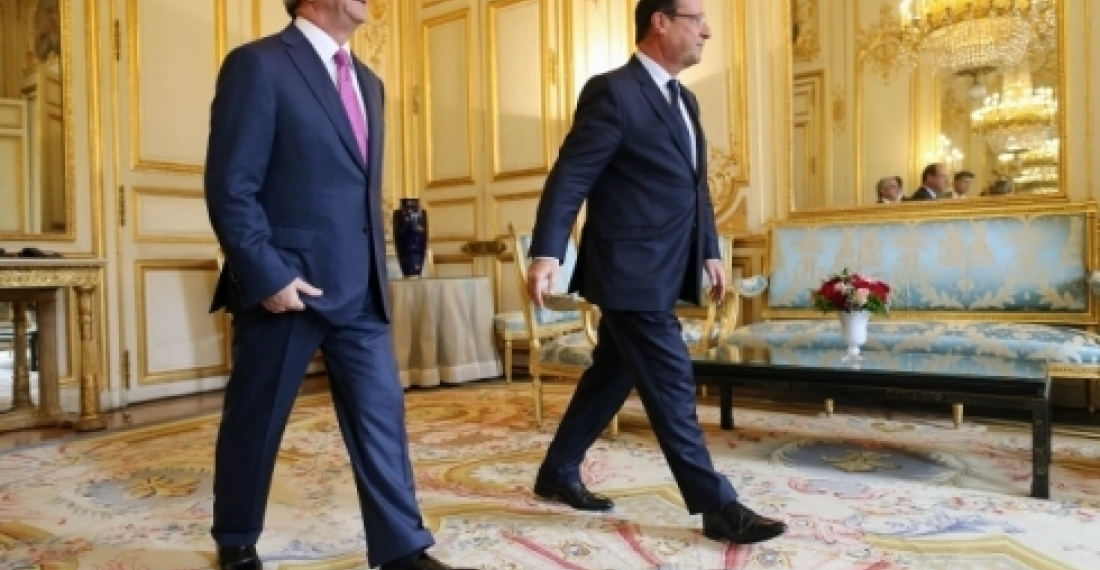The Armenian President, Serzh Sargsyan, was the guest at a working lunch given in his honour by the President of France, Francois Hollande, at the Elysee Palace, yesterday. Sargsyan visited Pariis on his way to Strasbourg where he is attending meetings in the framework of the Armenian Chairmanship of the Committee of Ministers of the Council of Europe. Armenia has the presidency for the first time since it joined the Council of Europe in 2001.
A short statement by the Elysee Palace said that in Paris "the two Presidents discussed the priorities of bilateral cooperation, especially economic, and prospects of relations between Armenia and the European Union. They also gave an update on the negotiations to find a peaceful solution to the Nagorno-Karabakh conflict. They discussed key international issues of common interest, in particular the crisis in Syria and its regional as well as the situation in Iran consequences."
This was the first visit of the Armenian President to an EU member state since he abruptly changed policy on Armenia's previously stated wish to enter into an Association agreement with the EU. The short statement of the French Government does not give any indication of whether the two sides were in agreement at the end of their discussions, but Armenian media sources were more upbeat about the visit, saying that the two sides "agreed on the necessity to exert all efforts to maintain the pace and quality of cooperation and continuation of the reforms in Armenia" and that President Hollande assured President Sargsyan that France "will continue to promote the advancement of the European agenda for Armenia."
source: commonspace.eu with the Press Service of the French Presidency and Armenian media sources.
Photo: President Sargsyan with President Hollande before a working lunch at the Elysee on 1 October (picture courtesy of the Elysee Palace.)







